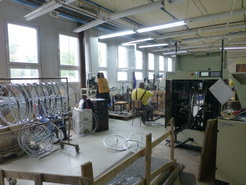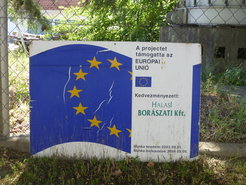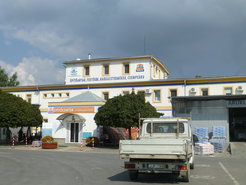Viktor’s loving it
Author: Chris Hann
On Wednesday 12th September the European Parliament in Strasburg voted to initiate proceedings against the government of Hungary, led by Prime Minister Viktor Orbán, on the grounds that it was undermining the fundamental values to be observed by all EU member states. Despite a fierce defence by Orbán himself in a speech the day before, almost two thirds of the parliamentarians who cast their votes opted to approve a highly critical parliamentary Report prepared in the preceding months by Judith Sargentini, a Dutch politician who represents the Green Party in the Parliament.
Though not well known internationally, in recent months while conducting her investigations Sargentini has become a household name in Hungary itself. The mass media have pointed out that she has little or no knowledge of the country’s history, culture or language. They have also alleged that her contacts in Hungary have been largely restricted to the political opposition, and to NGO activists supported in one way or another by George Soros, the bête noire of Viktor Orbán. The government alleges countless errors of fact and interpretation in the “Sargentini Report”. Orbán and his Foreign Minister have been predictively dismissive following the unprecedented decision of the parliamentarians to pursue disciplinary action under Article 7 of the European Union treaty. In their eyes it is the “petty revenge” of a liberal-leftist, pro-migration coalition that is unrepresentative of popular opinion and will receive its come-uppance at the European parliamentary elections of 2018.
The Fidesz leadership may be right. Orbán may be concerned that so many parliamentarians of the EPP, the conservative grouping to which Fidesz nominally belongs, voted against him on this occasion. His chief diplomats clearly have work to do in countries such as Austria and Italy. But his Visegrád neighbours remained loyal and Orbán revels in his role in the limelight, as the spokesman for silent majorities across the EU. This week’s decision in Strasburg is unlikely to change his Eurosceptic course. In my ongoing fieldwork in provincial Hungary within the framework of the REALEURASIA project, I find support for his stance undimmed. This certainly applies to his rejection of refugee quotas imposed by the Brussels Commission.
My project pays particular attention to small businesses. This Summer I noticed significant changes in the economic climate in Kiskunhalas, compared to the situation a year ago. For example, the factory assembling bicycles from Chinese components (see my blogpost of September 18, 2017) had completed its transition to more automated production methods. But its boss reported that one assembly line was idle because, though his order book was brimming, he could not recruit sufficient workers. The tasks are basically unskilled and the remuneration exceeds the minimum wage. But for similarly unskilled work in a country such as Britain, you can earn four or five times as much.


The incipient labour shortage does not lead employers to endorse a softer line on immigration into Hungary. Most condemn the system that obliges virtually all small businessmen to resort to the “envelope” method of payment. The employer declares most if not all of his workers at the level of the minimum wage, and adds a more or less hefty supplement in an illicit envelope of which the taxman learns nothing. Workers pay a price, since they know this affects their pension rights, but they also know that the employer's contribution to national insurance is high, and they accept that the profitability of the business could be seriously damaged if wages were declared honestly. In places such as Kiskunhalas this may well be generally true. This low-level corruption is not labelled as such. It is endemic but neither employers nor employees see any prospect of eradicating it. Certainly the opening of Hungarian labour markets to migrants from outside Europe is not a solution: rather, people ask why the present inequalities across EU labour markets give such strong incentives to young Hungarians to seek their fortune elsewhere.
The classification "corruption" is used with reference to higher levels of the new one-party system that has evolved in Hungary since 2010. Small businessmen in Kiskunhalas acknowledge this with a sigh. Good connections to the Fidesz party may be helpful in particular local contexts, but there is a ceiling above which only big players on the national level can operate. Small businessmen are glad to be left in relative peace with relatively low rates of taxation (apart from the standard value-added tax of 27%). Most agree that, from their point of view, the economy and the country are in better shape now than they were under pre-Fidesz governments. Those governments were certainly not more transparent than the present rulers.


Judith Sargentini's Report has little to say about these socio-economic issues, though they are obviously of fundamental importance for the Hungarian electorate. She is more concerned with academic freedom, the independence of the judiciary and the future of democracy itself. There is undoubtedly much to be concerned about in all of these fields in Hungary today and Western politicians are entitled to intervene as they have been doing over many years (Greens are especially active in this regard).
But had Sargentini tuned in to the news on the main government-controlled TV channel on the evening of her victory in Strasburg, she might have been surprised to see interviews with a succession of Hungarian opposition parliamentarians who voted in favour of her Report (and thus against their national government). A deputy of the socialist party (MSZP) explained very clearly why he felt it was his patriotic duty to support Sargentini against Orbán. Others too explicitly justified their vote in terms of the corruption of the regime. This was M1, which has led the anti-Sargentini propaganda for months, in a prime time transmission. The reporting of other, independent media was far more damning. Yet this is said to be a system in which media freedoms are threatened – indeed, this is one of the main components of Sargentini’s Report.
The European election campaign will be ugly and those Hungarian parliamentarians who voted to launch proceedings against their own country will be vilified as traitors in the months ahead. Concerning “illegal migrants”, the M1 channel has spread so much misinformation about conditions in other European countries that many Hungarians in places like Kiskunhalas believe that white women are nowadays afraid to walk the streets in Germany or Sweden. But these distortions are to some extent mirrored by the misinformation spread by the dominant media in many Western countries concerning life in Hungary, where contrary to widespread belief it is still possible to hold and cultivate opinions very different from those of the government. Opposition voices have not been silenced. The trouble is that no opposition voices have yet managed to articulate the frustrations of millions of ordinary citizens such as those of Kiskunhalas. Until this happens, this ill-balanced Report and the legally quite dubious vote to approve it in the European Parliament will only serve to intensify divisions within Hungarian society. It might even function to increase the likelihood that Orbán’s Eurosceptic position will triumph in next year’s elections - and not only in Hungary.



